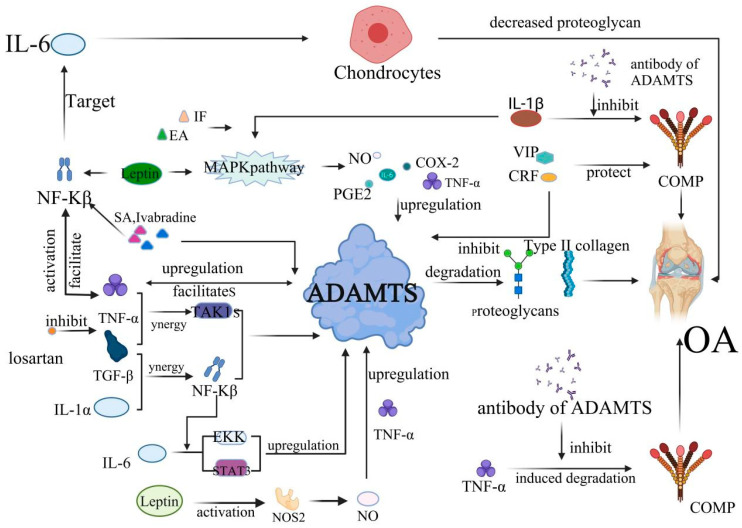Figure 2.
The development of OA is mediated by inflammatory factors and ADAMTS. TNF-α induces the production of prostaglandins (PG), IL-1, IL-6, IL-8, nitric oxide synthase (NOS), and cyclooxygenase-2 (COX-2); upregulates the expression of matrix metalloproteinase and ADAMTS-4, ADAMTS-5; and inhibits the production of proteoglycan and type II collagen, resulting in cartilage destruction and OA. This process is also affected by the IL1-β/MAPK pathway. COMP also plays an important role in the occurrence of OA. In particular, TNF-α, vasoactive intestinal peptide (VIP) can directly act on COMP, thus affecting the progression of OA. The PACAP is also evidenced to exert an anti-inflammatory function in OA. The expression of ADAMTS-7 is upregulated at the gene and transcriptional levels by TNF-α, and ADAMTS-7 further increases TNF-α levels, resulting in a positive feedback loop, accelerating the degradation of COMP and the onset and progression of OA. This process is mainly inhibited by the antibody against ADAMTS. Interleukin and growth factors are also implicated in the development of OA. For example, IL-1β can increase the synthesis of various proteolytic enzymes, such as ADAMTS metalloproteinases and matrix metalloproteinases (MMPs) and inhibit the synthesis of proteoglycan. TGF-β not only increases the ADAMTS-4 mRNA levels but also stimulates the expression of ADAMTS-16 in chondrocytes, which has important regulatory significance for the progression of OA.

